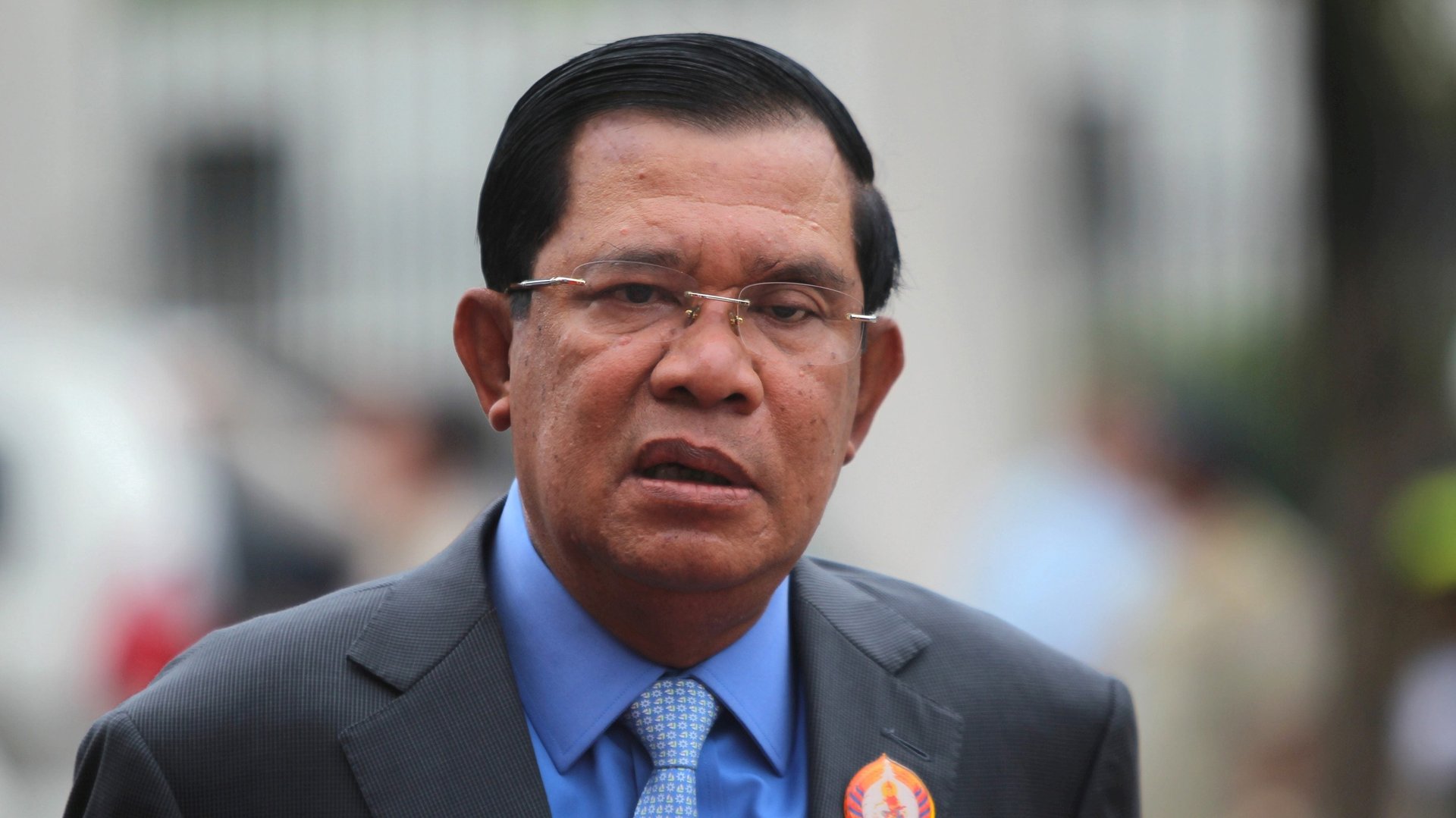“I can use violence against you”: Cambodia’s leader warns protesters ahead of Australia visit
Leaders from Southeast Asia are descending on Sydney for a summit this weekend between Australia and the ASEAN nations. Among them is Cambodia’s Hun Sen, the world’s longest-serving prime minister.


Leaders from Southeast Asia are descending on Sydney for a summit this weekend between Australia and the ASEAN nations. Among them is Cambodia’s Hun Sen, the world’s longest-serving prime minister.
Many are unhappy he owns that distinction, after more than 30 years in power. In recent years, Hun Sen has overseen the dismantling of the free press, shuttering of civil society groups, and bullying of political opponents. While he’s in Sydney, hundreds of Cambodian-Australians plan to protest his visit. He recently warned them not to burn effigies of him, saying: “I will follow you all the way to your doorstep and beat you right there…I can use violence against you.”
That does not, of course, sound like something a democratic leader beholden to voters would say. While Cambodia will hold elections this year, there’s little doubt Hun Sen will win. In November, the nation’s top court dissolved the main opposition party and its leader Kem Sokha had been jailed for treason a few months earlier. That prompted the EU and US to question the legitimacy of the upcoming election, and withdraw funding for it.
Hun Sen does not particularly need the West. In recent years he’s cozied up to China, praising its policy of “non-interference in domestic affairs” as it showers Cambodia with loans, grants, and investments (or sets a debt trap, as some see it). His government has in turn helped Beijing by using its veto power in ASEAN. In 2016, Cambodia blocked the organization from making any mention, in a post-meeting statement, about an international tribunal invalidating China’s sweeping claim to most of the South China Sea.
Hun Sen won’t be the only authoritarian Southeast Asian leader in Sydney.
Thai prime minister Prayut Chan-o-cha, who led a military coup in 2014, has made a habit of promising that elections will be held and then pushing back the date, most recently to no later than next February. Malaysian prime minister Najib Razak is at the heart of embezzlement probes in multiple countries focused on a state development fund he oversaw, in what one US official called “kleptocracy at its worst.” When the scandal exploded a few years ago, Najib’s administration suspended publishing permits, declared protests against him illegal, and fired ministers asking too many questions.
Philippines president Rodrigo Duterte, for his part, is skipping the Sydney gathering and sending his foreign affair secretary instead. He declared this week that he’s withdrawing his nation’s ratification of the International Criminal Court. That followed the ICC last month announcing an investigation into possible crimes against humanity over his deadly war on drugs. Like Hun Sen, he’s been accused of getting too cozy with China, particularly regarding the South China Sea.
Human Rights Watch noted in a report on this weekend’s summit (pdf, p. 2):
China’s growing influence in the region is increasingly used by Australian officials as an excuse not to raise human rights matters publicly…It would be a major setback for citizens of ASEAN countries for the Australian government to gloss over human rights issues in the hopes of winning over the region’s leaders away from China…Almost all ASEAN leaders invited to Sydney preside over governments that deny basic liberties and fundamental freedoms to their citizens.
For Australia, the summit “shouldn’t just be an opportunity to dance with dictators, but a chance to publicly press them over horrific human rights abuses across the region,” said Elaine Pearson, the group’s Australia director, in a statement.
Despite this, Australian prime minister Malcolm Turnbull and his ministers are more likely press the ASEAN leaders on issues like building economic ties, cooperating on counter-terrorism, and enforcing North Korea sanctions.
As for Hun Sen’s harsh warnings of violence, they’re notable mostly for how jarring they sound in a democratic country like Australia. As Griffith University lecturer Lee Morgenbesser noted to the ABC News, such comments are “par for the course in Cambodia.”